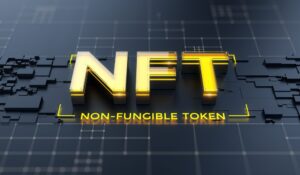Blockchain technology is transforming how we think about data, security, and trust. The decentralized nature of blockchain networks allows for greater transparency and security. One area where blockchain technology is useful is in the field of Domain Name Services (DNS).
Traditional DNS systems are centralized and controlled by a single organization, whereas blockchain-based DNS systems are decentralized, meaning that no entity controls the system.
With the rise of non-fungible tokens (NFTs) and other decentralized applications, having a reliable and user-friendly way to access these services is essential. This article will explore the various blockchain DNS systems and discuss their benefits and drawbacks for NFT creators.
Ethereum Name Service
Ethereum Name Service is a blockchain DNS that allows users to register and manage domain names on Ethereum’s decentralized ledger. ENS domains are similar to Web 2 domain names, but instead of being controlled by a central organization, the Ethereum blockchain stores and manages the domain names on the blockchain.
One of the benefits of ENS domains is that they are popular among NFT creators and providers. That is because they are generally easy to access and have a whole community of developers to help you with any issues.
Additionally, smart contracts allow for automated management of domain name registrations, renewals, and transfers.
A notable drawback of ENS is that ENS relies on the Ethereum network and is subject to its limitations and congestion. This congestion may cause delays in registering, updating, and resolving domain names.
SPACE ID
Space ID is a cutting-edge blockchain-based Domain Name Service (DNS) system that aims to revolutionize how we access decentralized applications and non-fungible tokens (NFTs). The system is easy to use and navigate, making it accessible to various users.
This aspect is crucial as more people use decentralized applications and NFTs. However, there are some drawbacks with SpaceId; SpaceID needs widespread adoption and integration with other systems.
As a new and emerging technology, it may have a different level of usage and integration than more established decentralized naming systems.
Handshake
Handshake is an open-source, decentralized DNS that utilizes a new blockchain and consensus mechanism to provide a decentralized and censorship-resistant DNS.
Handshake allows for the open registration of top-level domains (TLDs), meaning that anyone can register and manage a TLD without needing to go through a centralized entity such as ICANN (Internet Corporation for Assigned Names and Numbers). This aspect allows for increased innovation and competition in the naming space, alongside more community-driven control over the TLDs.
A drawback of Handshake is that the user interface and experience may not be as polished as other more mature systems, making it challenging for some users to navigate and utilize the system. Furthermore, the company is still young, and its services may need to be fixed due to tech adoption delays, unlike ENS systems.
Disclaimer: NFTs and Cryptocurrencies are highly volatile, conduct your own research before making any investment decisions. Some of the posts on this website are guest posts or paid posts that are not written by our authors (namely Business Voices content) and the views expressed in these types of posts do not reflect the views of this website. Please read our full disclaimer here.




